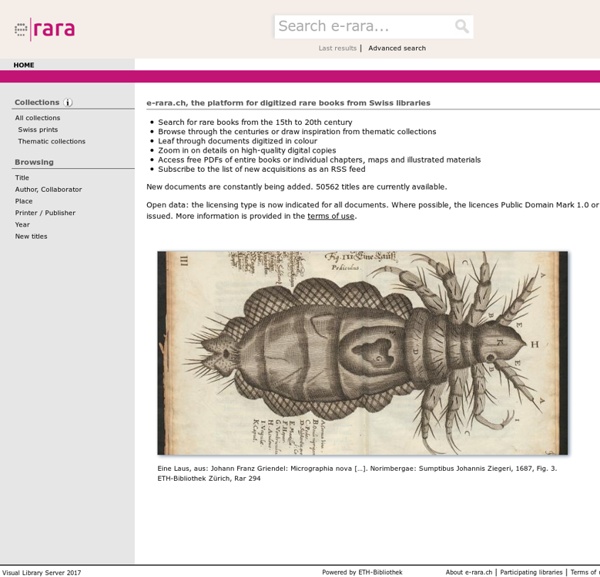



Five Medieval Chronicles that you can read translated online Page from the Nuremberg Chronicle We have come across many translated medieval sources through our online wanderings. Most medievalists will know about the larger databases of texts, such as the Internet Medieval Sourcebook and De Re Militari. However, there are a lot of sources that are not widely known, including these five chronicles from the Middle Ages. Cassiodorus’ Chronicle Cassiodorus, the 6th-century Roman statesman and administrator for the Ostrogothic Kingdom, is also considered to be one of the most important writers of the early Middle Ages. The Chronicle of Herman of Reichenau, 1039-54 This is one of several texts that Graham Loud at the University of Leeds has translated and made available online. The Chronicle of the 24 Ministers General This work by Arnald of Sarrant presents a history of the Franciscan order from its founding by Saint Francis of Assisi to the year 1378. The Nuremberg Chronicle The Pskov 3rd Chronicle
PaperC jetzt mit CSV-Gesamtexport - OpenBibBlog 28 Jun von Oliver Flimm - Kategorie: Allgemein, Einblicke und Konzepte Entsprechend einer Mail von Lukas Rieder stellt PaperC nun einen CSV-Export mit rudimentären Metadaten aller dort verfügbaren E-Books unter für eine weitere interne Verarbeitung in anderen Plattformen – wie z.B. dem KUG mit OpenBib – zur Verfügung. In dieser CSV-Datei befindet sich die ISBN13 der E-Book- und Print-Ausgabe (die Print-ISBN leider noch nicht überall), der Titel und der URL des Buches bei PaperC. auffindbar sind, so kann nun zumindest über das PaperC JSON-API mit der ISBN13 die Existenz der Print-Ausgabe verifiziert werden: Für einen Mashup rein über JavaScript reicht dies aus. Bei der Entwicklung des KUG verfolgen wir seit jeher die Strategie, dass jede Funktion auch ohne aktiviertes JavaScript nutzbar sein soll. Konkret verwenden wir nun diesen Abschnitt im Template [% IF normset. anstelle von
Strabo, Geography, NOTICE. THE present translation of Strabo, the great Geographer of Antiquity, is the first which has been laid before the English public. It is curious that a classic of so much renown and intrinsic value should have remained a comparatively sealed book to this country for so many centuries; yet such is the fact. It is true that the imperfect state of the Greek text, and the difficulty of geographical identification, have always been appalling obstacles; yet, after the acute and valuable labours of Gossellin, Du Theil, Groskurd, and especially of Gustav Cramer of Berlin, (whose text is followed in the present volume,) we might fairly have expected that some English scholar would have ventured to enter the field. But the task, like many in a similar position, has been reserved for the publisher of the Classical Library, and he trusts it will be found conscientiously fulfilled. The translation was, in the first instance, intrusted to Mr. This is all it seems necessary to state here.
ePub Converter. Convert pdf to epub. Free online tool to ... digital.bodleian -library collections available online Wikisource LIBRARIES OF FAMOUS MEN If there is one thing the great men of history have in common it’s this: books. They read, a lot. Theodore Roosevelt carried a dozen books with him on his perilous exploration of the River of Doubt (including the Stoics). Lincoln read everything he could get his hands on (often recording passages he liked on spare boards because he didn’t have paper). Napoleon had a library of some 3,500 books with him at St. The point is: Successful people read. Now a lot of the right recommendations are domain specific. These are the books that prepare you for the top, and also warn against its dangers. Biographies How-to & Advice Philosophy & Classical Wisdom Fiction Liber medicina animi — a book is the soul’s medicine. Of course, the books listed here are by no means all you need to be healthy or fulfilled. Enjoy and be careful out there. Ryan Holiday is the bestselling author of The Obstacle Is The Way: The Timeless Art of Turning Trials Into Triumphs and two other books.
Grimms Kinder- und Hausmärchen Übergeordnete Themenseite: Märchen Drucke der Kinder- und Hausmärchen (Große Ausgabe)[Bearbeiten] Anmerkungsband[Bearbeiten] Versionen der Märchen und Kinderlegenden (KL)[Bearbeiten] Diese Tabelle ist sortierbar, dazu einfach die kleinen Pfeile in der Kopfzeile benutzen! Fragmente und Bruchstücke[Bearbeiten] Die Fragmente (KHM 85) aus der 1. Sekundärliteratur[Bearbeiten] Ars Edendi - A Full Lectionary Project leader: Brian Møller Jensen Books used for the recitation of lessons in the Divine Office may appropriately be classified as liturgical texts. Although these naturally were very widespread in the Middle Ages, only a limited number of such manuscripts have been preserved, mostly in different local versions. In such a case, a viable scholarly alternative to producing a critical edition is to offer access to a modified diplomatic edition of a complete collection of lessons. Such an edition will provide scholars with an instrument for further studies in various fields of medieval research as the Latin language and literature, biblical exegesis, liturgy, theology, hagiography, the history of ideas, and Latin translations of Greek texts.